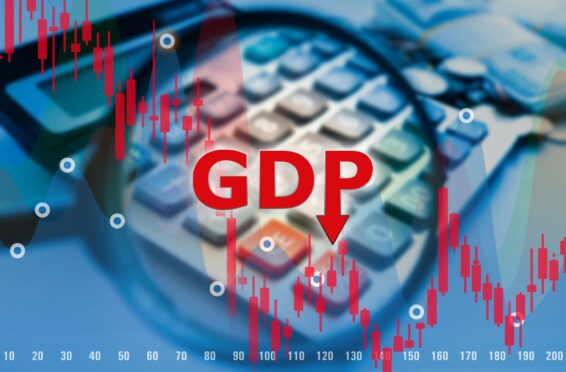Mutual Scottish Friendly has said financial storm clouds “look ready to burst” on the back of official figures showing the UK economy shrank by 0.3% in August.
The latest figure from the Office for National Statistics (ONS) comes hard on the heels of modest growth in July, when gross domestic product (GDP) rose 0.1%.
Scottish Friendly savings specialist Kevin Brown said: “The latest GDP figures for the UK reflect the complex economic and financial picture the country is facing.
“The storm clouds have already gathered and now look ready to burst.
“Falling GDP at this critical juncture adds to an already complicated situation and will further reduce confidence among households already facing stifling cost-of-living pressures.”
He added: “The IMF (International Monetary Fund)… predicted UK GDP will go on to be stronger than other G7 nations.
“While this could prevent bigger issues in the job market, it looks likelier than ever that inflation will persist for longer.
“The IMF for its part says it forecasts 9%-plus inflation for another two years in the UK.
Households urged to ‘build up’ financial resiliency
“This is compounded by the fact the Bank of England is now effectively unwinding monetary tightening before it ever meaningfully got going.
“Again, while this might resolve some particular market issues, it is little comfort for households facing ongoing, eye-watering rising costs.”
So, what can households do with such a complicated outlook?
Mr Brown said: “It may seem tough, if not impossible for many, however, continuing to build up financial resiliency wherever possible could be the best way to limit the damage of any future shocks further down the tracks.”
Recession looming?
Economists had expected zero growth in August.
The latest data means the economy is likely to contract overall in the third quarter, with the ONS confirming there would need to be growth of more than 1% in September to avert a quarterly decline.
It comes amid fears the UK is heading for a recession – defined as two or more quarters of falling GDP output – as the cost-of-living crisis takes its toll on households and businesses.


Conversation